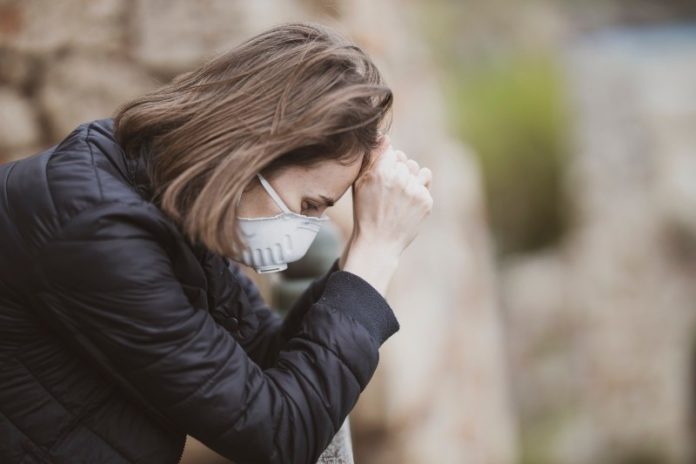
The COVID-19 pandemic has been incredibly challenging, and you may find yourself feeling a bit uneasy. Perhaps you’re having difficulty sleeping, struggling to focus, having more frequent negative thoughts, or finding yourself more easily angered. These are all symptoms of anxiety and could stem from the fear, lifestyle changes, and general unknowns associated with COVID-19.
“The first thing that we all should realize is that a certain level of anxiety is natural and actually helps us in our day-to-day life,” says Janette Heath, Vice President of Clinical Excellence for Centerstone. “So it is important for everyone to be aware and mindful of when anxiety turns from beneficial stress, also called ‘eustress,’ to distress.”
Anxiety is one of the most common mental illnesses among adults in the United States, affecting nearly 40 million Americans every year, according to the Anxiety & Depression Association of America. Anxiety can manifest differently from person to person and can vary widely in terms of severity, but there are some generally accepted methods to help you reduce the negative symptoms that generally occur:
1. Focus on what’s within your control: Remember that there are some things you cannot change, so focus your thoughts and actions on things you can control instead. For example, many people have been ordered by local and state governments to shelter in place at home and you cannot change when that will end. But you can take steps to make your home environment more comforting or more functional for your new temporary routine.
2. Make self-care a priority: When it comes to anxiety, it’s critical that you get the proper nutrition, a full night’s sleep, and plenty of exercise. These things can go a long way in diminishing symptoms of anxiety.
3. Cut down on alcohol, tobacco, and caffeine: Now that many coffee shops and bars are closed, it could be time to try to call it quits on your alcohol, tobacco, and/or caffeine intake. Research shows these substances can all have negative effects on your emotional wellbeing and contribute to feelings of anxiety.
4. Recognize triggers: It’s important to recognize what might be contributing to your anxiety. What are your triggers or fears? Once you recognize these, you can work on addressing them.
5. Avoid consuming too much news: You may not realize it, but taking in too much negative news can lead to increased feelings of fear, worry, and anxiety. It’s perfectly fine to stay informed, but just be careful not to overdo it.
6. Do self-checks: Take time to check-in with yourself just like you would with a friend or family member. Are you feeling anxious? Do you need to take a minute to just breathe? Activities like journaling or practicing mindfulness can help you check in with yourself and improve your emotional wellbeing.
7. Reach out for help: It is okay to ask for help! Centerstone remains fully operational and continuing to serve our clients and communities. To reduce the risk of COVID-19 exposure at this time, most appointments are being conducted via telehealth. Call us at 1-877-HOPE123 (877-467-3123) or go to centerstoneconnect.org to see how our experts can help today!
















